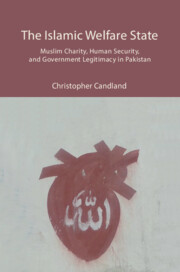Book contents
- Frontmatter
- Dedication
- Contents
- List of Illustrations
- Preface
- Note on Translations and Transliterations
- List of Abbreviations
- Part 1 Introduction
- Part 2 Piety and Public Goods
- Part 3 Pakistan
- Part 4 Charities
- Part 5 Religion, State, and Public Goods
- Afterword
- Acknowledgments
- Appendix: Charities Studied
- Glossary
- References
- Index
9 - Partisan Islamic Charities
Published online by Cambridge University Press: 30 April 2024
- Frontmatter
- Dedication
- Contents
- List of Illustrations
- Preface
- Note on Translations and Transliterations
- List of Abbreviations
- Part 1 Introduction
- Part 2 Piety and Public Goods
- Part 3 Pakistan
- Part 4 Charities
- Part 5 Religion, State, and Public Goods
- Afterword
- Acknowledgments
- Appendix: Charities Studied
- Glossary
- References
- Index
Summary
We want to break the begging bowl and make Pakistan a truly Islamic welfare state.
—Imran KhanThe goal of national progress and prosperity will be achieved and Pakistan will be transformed into an Islamic welfare state, in the real sense, as was envisioned by Quaid-i-Azam and Allama Iqbal.
—Shehbaz SharifA political party is created with the ostensible objective of becoming a ruling party. A political party is an aspiring government. Social welfare services provided by parties often promote and maintain networks of patronage and generate sentiments that are similar to those generated by government. They create social bonds not primarily between the providers and the recipients, but more so among the providers. In Pakistan, the declared aim of many political parties, including the ruling party today, is to create an ‘Islamic Welfare State.’
This chapter discusses the social welfare activities associated with political parties and those associated with militant organizations. We discuss the charities associated with the political parties listed in Table 9.1. We also discuss charities associated with Rubina Shaheen Wattoo and her father's Pakistan Muslim League–Jinnah and those associated with the outlawed Jamaat ud Dawa, Al Rashid and Maymar Trusts.
In all cases, the relation described as an association is not legal but informal. Al Khidmat Welfare Foundation, for example, is known to be associated with the Jamaat-i-Islami and is run by senior members of the party, but the foundation has been legally separated from the party since 2004. The Shaukat Khanum Memorial Cancer Hospital and Research Center, to give another example, is connected with the Imran Khan Foundation, not the Pakistan Tehreek-i-Insaf. But the public generally regards the hospital to be associated with the party because former national cricket team captain Imran Khan founded both.
One might distinguish further between social welfare associations whose founders established political parties and social welfare associations that were created as organizations to promote the ideology of a political party. Imran Khan created the Pakistan Tehreek-i-Insaf after he had established the Shaukat Khanum Memorial Cancer Hospital. Tahir ul Qadri formed the Pakistan Awami Tehreek (PAT) after he had established the Minhaj Welfare Foundation.
- Type
- Chapter
- Information
- The Islamic Welfare StateMuslim Charity, Human Security, and Government Legitimacy in Pakistan, pp. 181 - 203Publisher: Cambridge University PressPrint publication year: 2024

